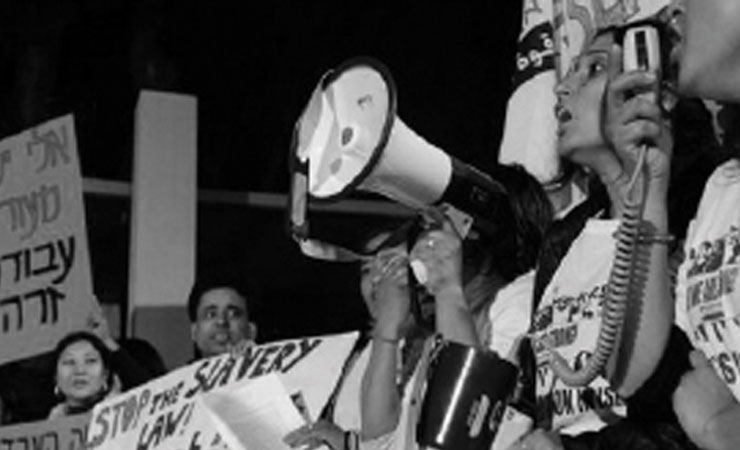“For asylum seekers in Israel there are no work permits, access to basic rights or social welfare. Therefore, they are forced to live as a group in disadvantaged neighborhoods and rely on support from the local community”, human rights organizations explain in their position paper for the committee this morning. “The creation of a legal and organized policy which allows asylum seekers to work allows them to live in various places in Israel.”
Today, the government allows the employment of asylum seekers (with written permission to stay in Israel) by simply restricting sanctions or fines against them. This ambiguous “agreement” leads to employment under abusive conditions- employers who do not pay salaries and take no responsibility for work accidents.
“Many times you work and you don’t get paid at all. You work a month and then they say that they will pay tomorrow. Two days later they say, we will pay you tomorrow. After, they just stop answering your phone calls,” says Tesfawit Madin, an asylum seeker from Eritrea and caregiver.
Human rights organizations call for the Israeli government to lead an organized employment policy for asylum seekers, breaking the silence regarding working conditions, ensuring minimum wage and rights that should be given to all workers in the Israeli economy. In addition, allowing asylum seekers to have work permits will ease the poverty and improve the ever-growing crime rate that has been so effected by this situation. Most importantly, an organized employment policy will ensure that Israel obeys international demands to protect human rights.


